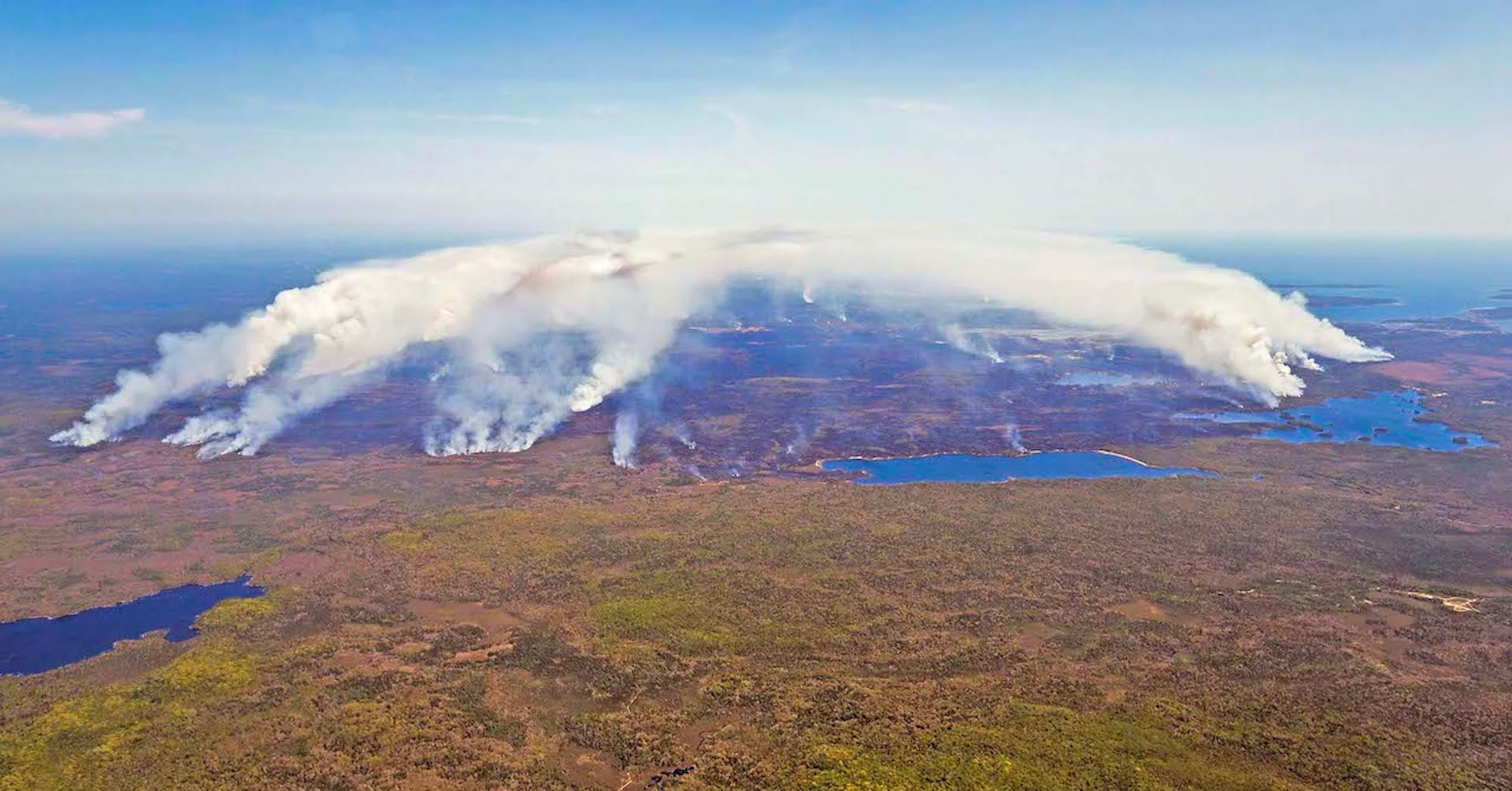
Uncontainable wildfires continue to ravage Canada with no end in sight
As of Sunday, Canada had seen 2,214 wildfires so far in 2023, burning an estimated 3.3. million hectares. There were 413 active blazes, of which, 249 were considered out of control
Visit The Weather Network's wildfire hub to keep up with the latest on the active start to wildfire season across Canada.
With rampant wildfires popping up across the country in recent weeks, the federal government delivered an update Monday on the ongoing situation and what to expect going forward through the summer.
The news on both fronts isn't good.
"Our modelling shows this may be an especially severe wildfire season throughout this summer," said Prime Minister Justin Trudeau, at a news conference. "This is a scary time for a lot of people, not just in Alberta, but right across the country, including in the Atlantic, the North and Quebec, too."
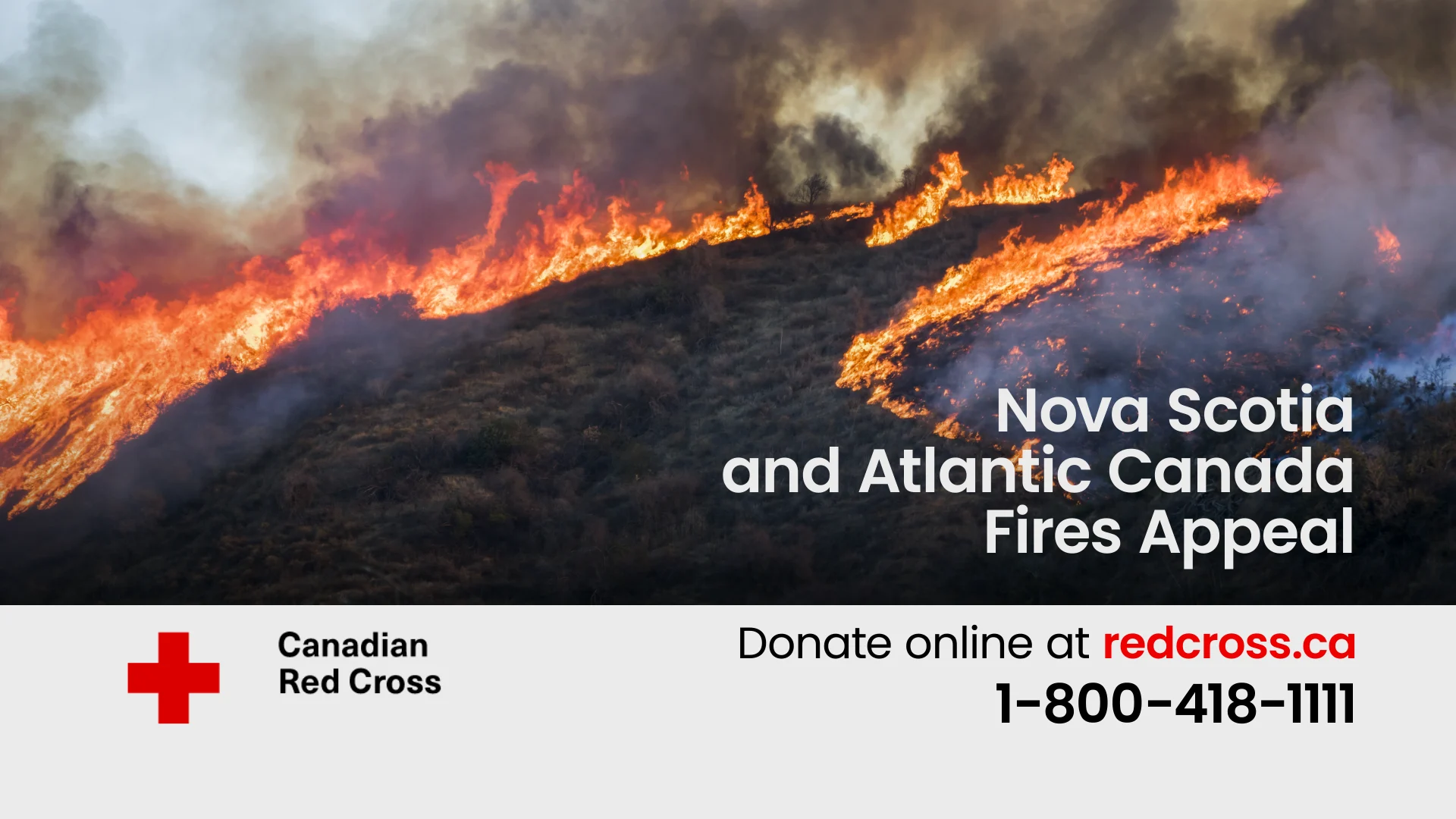
SEE ALSO: Top five ways human-caused wildfires start
As for what's already occurred this year, Canada had seen 2,214 wildfires as of June 4 -- burning an estimated 3.3. million hectares, according to Bill Blair, Canada's Emergency Preparedness Minister. As of Sunday afternoon, there were 413 fires burning across the country, with 249 of them still considered to be out of control.
Eighteen of the fires were impacting First Nations communities: Six in Alberta, five in Saskatchewan, one in N.W.T., four in Quebec and two in Nova Scotia.
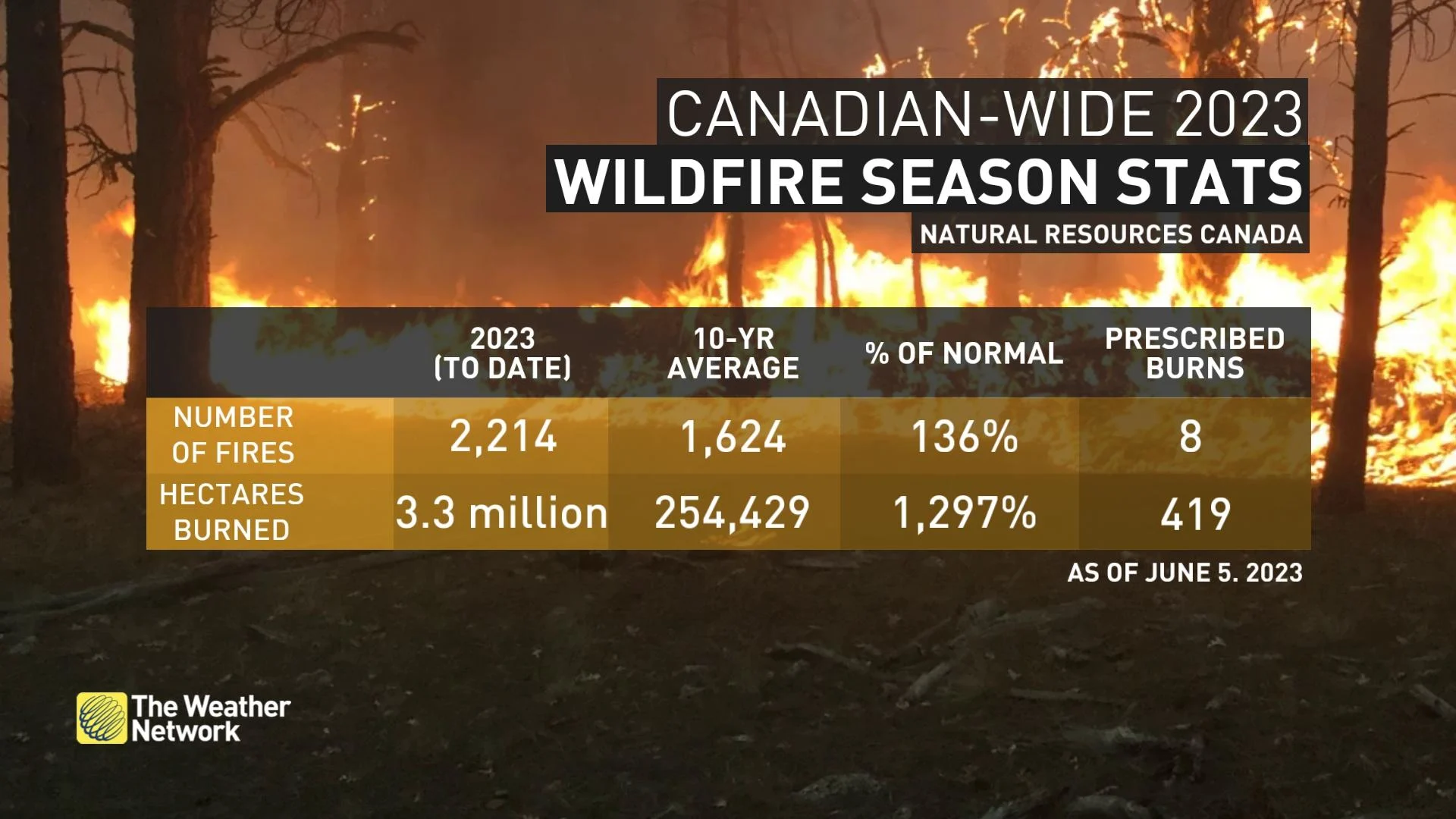
As of June 4, an estimated 26,000 people remained under evacuation orders in British Columbia, Alberta, Northwest Territories, Saskatchewan, Quebec and Nova Scotia.
The 10-year average during the same timeframe was 1,624 fires and 254,429 hectares burned, according to Mike Norton, director general of the Northern Forestry Centre at the Department of Natural Resources.
WATCH: Tips to help protect yourself from wildfire smoke
He told the media at the press conference that the number of fires occurring at this time of year isn't normal, also advising Canadians to exert "extreme care" in forested regions.
This month, the fire threat is deemed to be well above average countrywide with the exception of Newfoundland and Labrador, where it is considered average.
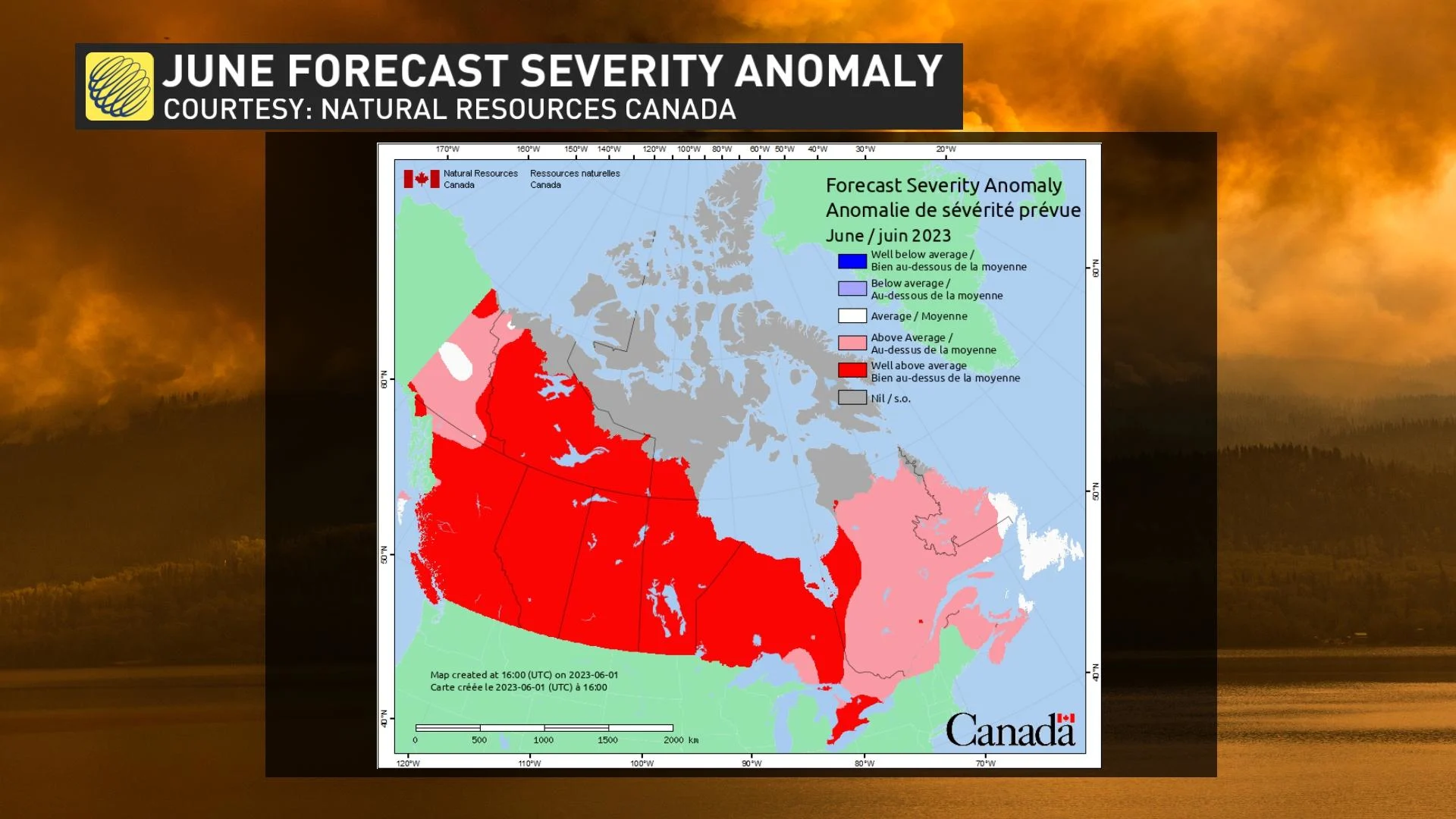
Despite the grim outlook, Trudeau said Canada should have sufficient resources to get through the summer. He noted the government has signed off on aid requests from Alberta, Nova Scotia and Quebec, and has agreed to sending Canadian Armed Forces troops.
"If things get worse, we are developing contingency plans and we will of course make sure that we are there, whether it's leaning more on international support, whether it's standing up other resources," said Trudeau.
"We will be there to ensure all Canadians are protected right through this summer."
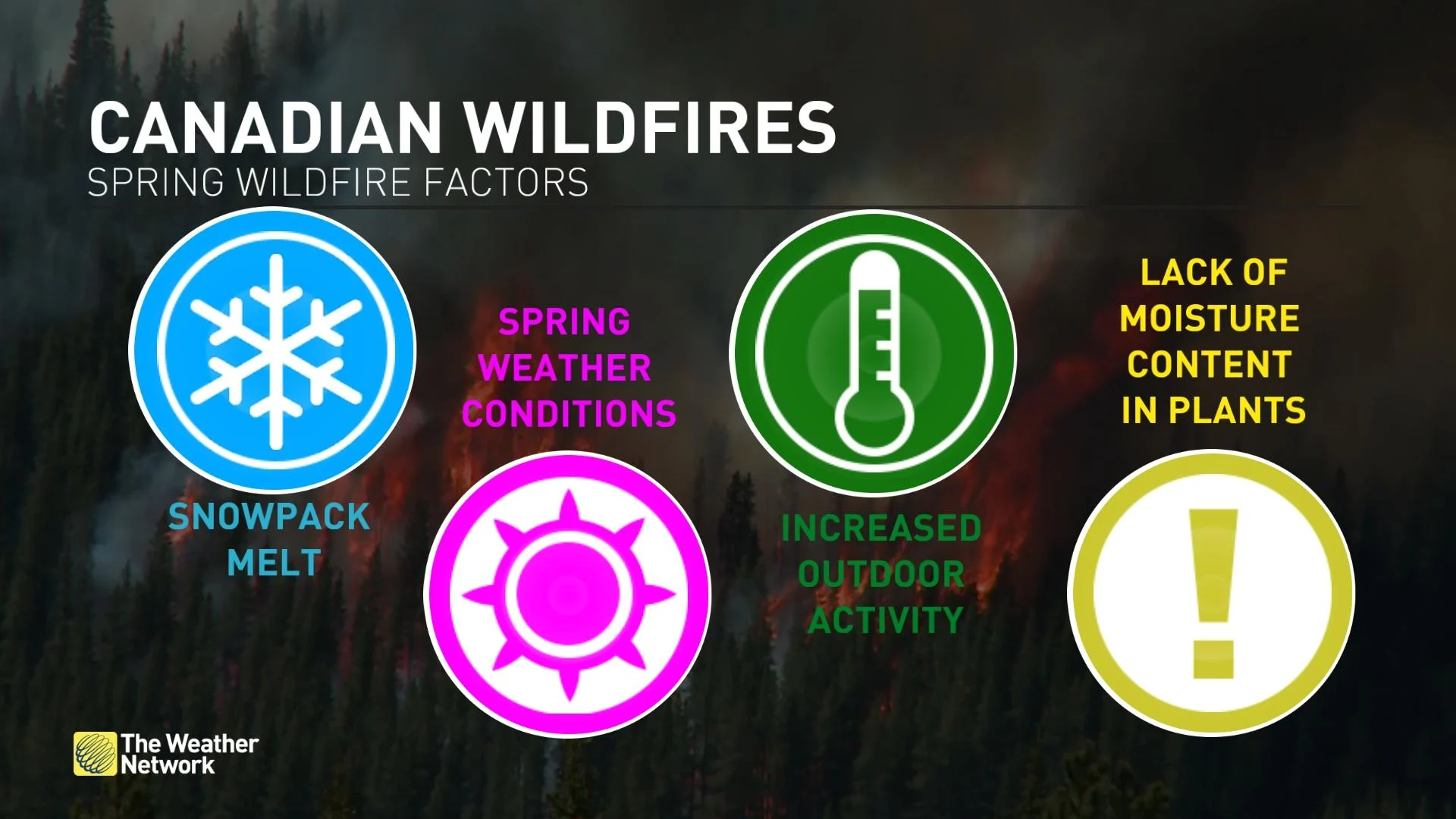
Thumbnail showing the magnitude of the fire in Shelburne County, N.S, is courtesy of Communications Nova Scotia.
With files from CBC News.
Follow Nathan Howes on Twitter.











